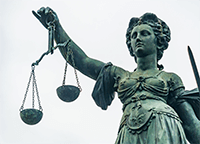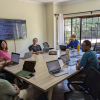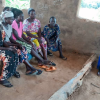Justice and Conflict in South Sudan - Pilot Survey - Briefing Paper
After a joyous celebration of South Sudan’s independence in July 2011, most international donors and observers considered South Sudan to be moving past the crisis stage. These hopes were shattered with the outbreak of large-scale violence in December 2013. A power-struggle over the leadership within the SPLM triggered the crisis, but the violence was also fueled by unresolved grievances between different identity groups; remnants of South Sudan’s past crises.
This briefing paper presents initial observations arising from a pilot survey conducted in Juba in April 2015, as part of the research project “Intersections of truth, justice and reconciliation in South Sudan”.
Its findings include that the majority of people considered the top-leadership of the country to be responsible for the conflict, and also argued that activities relating to public dialogue, truth finding, reconciliation, or justice, should first be taken at the national level, by the political leadership.Yet, at the same time, people emphasize the importance of local level reconciliation efforts and the need to address communal conflicts.






Login or register for free to get all access to our network publications. Members can also connect and discuss with other members. Participate in our network.